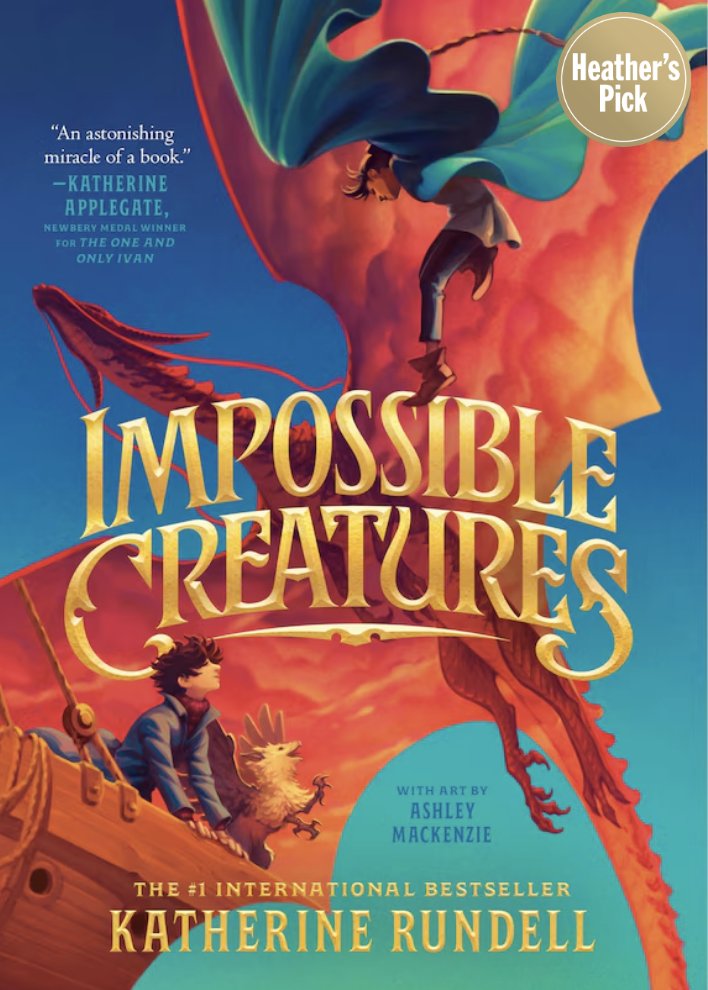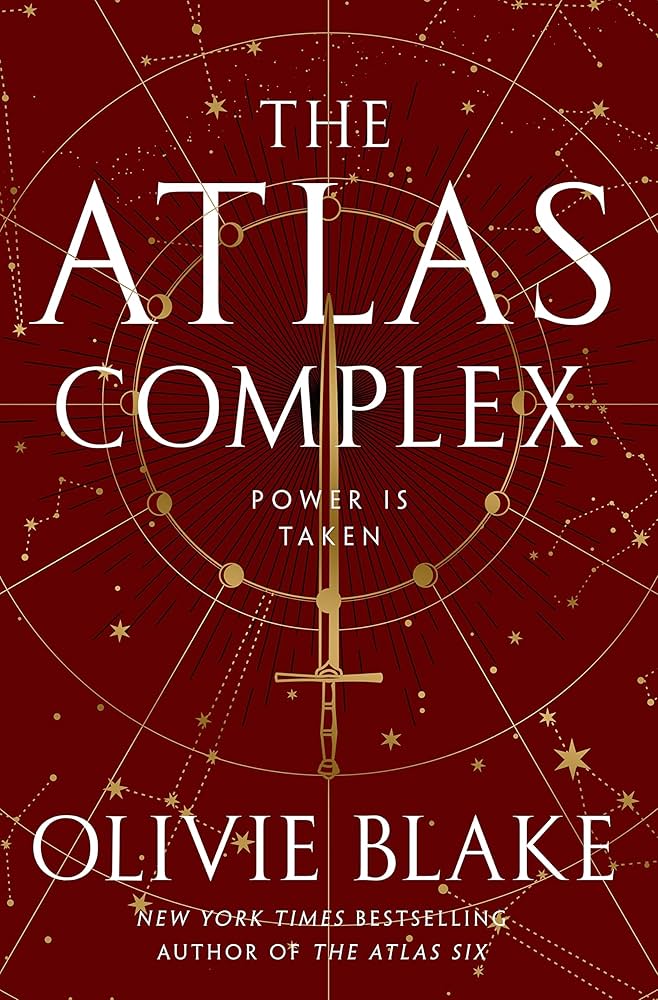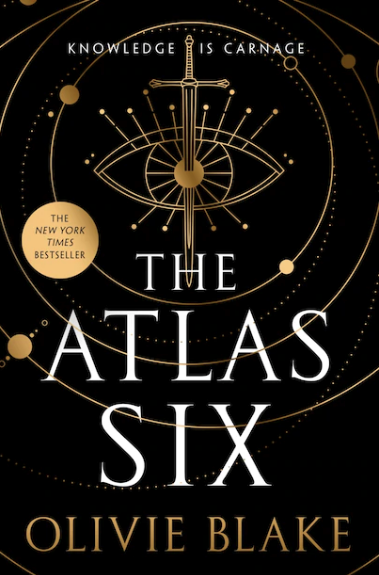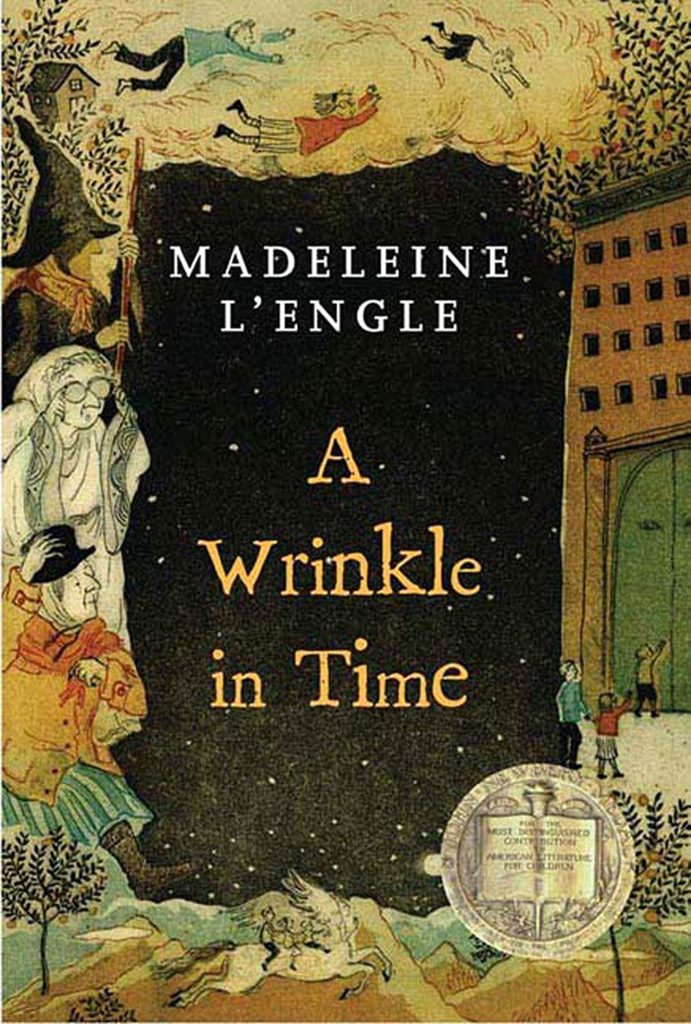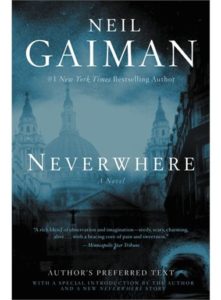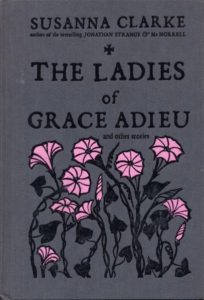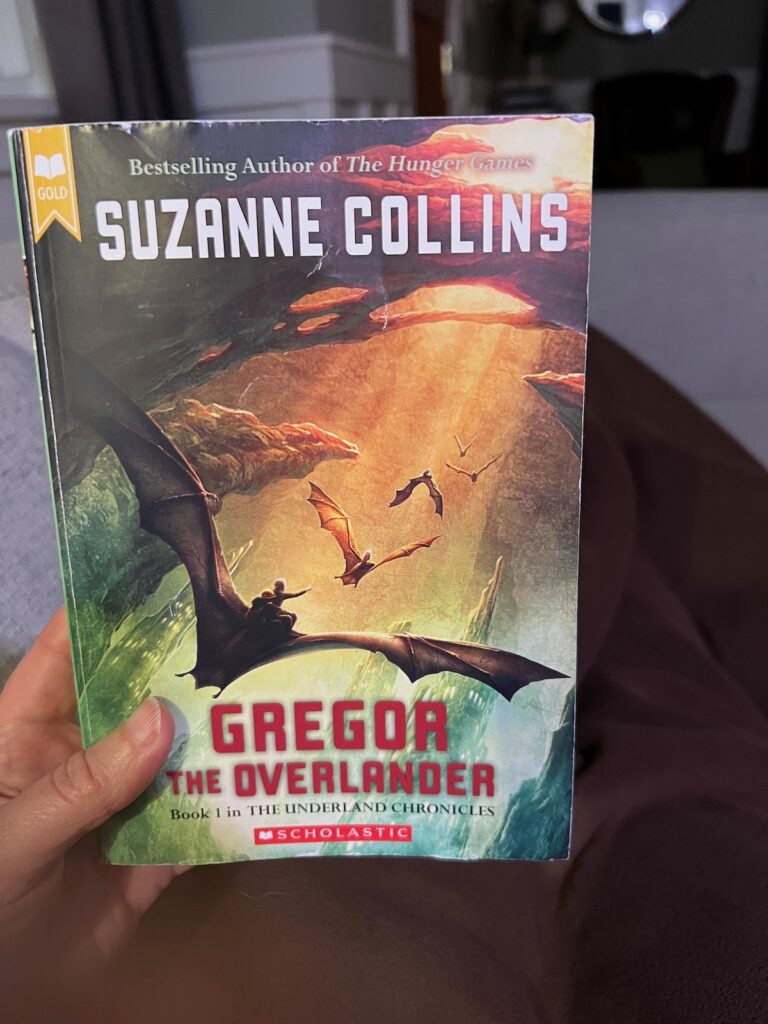
Gregor the Overlander was originally published in 2003 and it was completely off my radar until my son’s grade 6 class started reading it in school. This is an epic fantasy series. Suzanne Collins’ writing is as strong as it is in Hunger Games, which was published in 2008, but the story is for a slightly younger audience
I’d say Gregor is for age 9-12 and it is scarier than Dragon Masters but not as scary or mature as Harry Potter or as terrifying as Hunger Games. Gregor the Overlander is on par with Impossible Creatures but more sophisticated in the layers of storytelling.
Gregor is caring for his younger sister when they fall through a grate in their apartment’s laundry room. Gregor and “Boots,” his sister, land in the Underland, where big cockroaches rescue them by taking them to Regalia. Regalia is inhabited by humans with translucent skin and violet eyes. They are warriors who fly around on bats and they are on the verge of war with the rats. Giant, talking rats. Gregor soon learns of a prophecy that foretells of a warrior who will save Regalia, and in the riddle of the prophecy he believes that joining the adventure might lead him to his father, who mysteriously disappeared and may be employed/enslaved by the rats.
This is a fast-paced novel with excellent drama, villains who are friends, and twists of fortune. I enjoyed it so much that I also read the next book in the series, Gregor and the Prophecy of Bane.
If you like world-building fantasy that is full of adventure then read this endearing story of struggle and bravery.
